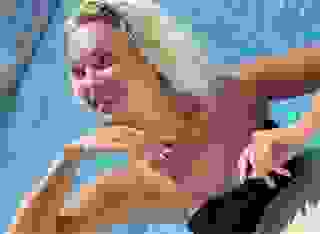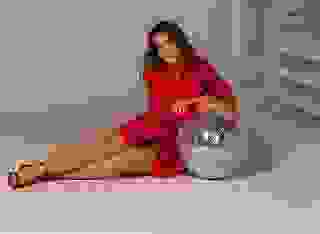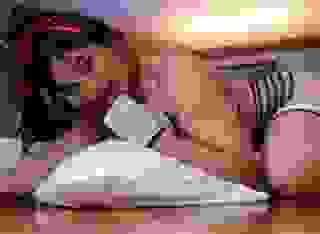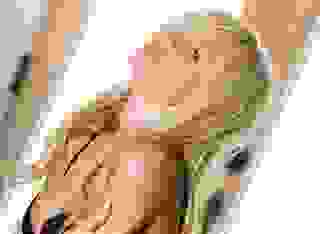Note: You can change font size, font face, and turn on dark mode by clicking the "A" icon tab in the Story Info Box.
You can temporarily switch back to a Classic Literotica® experience during our ongoing public Beta testing. Please consider leaving feedback on issues you experience or suggest improvements.
Click here"Yes, I met the Lord almost a week ago. An argumentative and arrogant fellow, with an ugly scar on his face."
"We never met Lord Wellock. By 'we', I mean my Mother and I arrived late at Wellock Church, the roads, you know, so we were introduced, formerly betrothed and married immediately after Evensong."
"Where is your mother?"
"Back in Pitstone, to 'The Three Horseshoes Inn'."
"Why Three Horseshoes?"
"Because after her first husband, Robert of the Clan Elliott, died, my mother had to find some means of supporting herself. Riding through one unpromising village, the horse threw a shoe just outside the inn. She entered to find the tenancy was pending and she bargained the whole £3 gratuity she had been paid for her husband's life, for the rest of the year's rent."
"And she was witness to your wedding?"
"She pretended to be my maid and took the bride price, 30 marks, and hotfooted it back home, or the Count would have taken it back when, when I was made his. Now I cannot allow the Count to take my Lady's fortune and leave her and her new husband penniless."
"But he has the marriage contract, what do you have to prove your entitlement?"
"I have a token given me by Lady Elinor that the bank will accept as guarantee of my right to claim for her."
"All right, I will help you get as far as the Red Hand Bank, er, Maid Jane."
"Please, Robin, if you could continue to call me 'Lady Elinor', for appearance's sake ... unless you'd like to explain all this to Hugh?"
"It will be a honour to help you get as far as the Red Hand Bank, my dear Lady Elinor."
17.
Word comes late
(Will Archer, narrates)
After lunch I am summonsed to appear at the East Gate, which has mostly been quiet these last few days with people from Chester flooding around the North Gate, by the Castle. I am surprised and initially concerned to see Henry Small, the man I left in charge of my son Robin and his best friend Hugh, standing exhausted by his steaming horse.
"What ho, Henry, where are the boys?" I call from the town wall above the gate, while lifting the mask from my mouth to sound all the clearer for it.
I try and pitch my question with as level a voice as I can. I have had enough practice in both raising and lowering the pitch and tone of my voice to almost comfortably moderate my true feelings of late. I have heard myriad pleas by husbands and fathers to release wives and children to escape the pestilence and remained as unbending as stone. But when confronted with injury or worse to someone close to me, it is almost too much to bear.
"Have you not had a messenger from Wellock, this last day or two, Sire?" Henry replies with a question of his own across the void. "It should have come the day before yesterday."
"No. I have had no word."
"Strange, as Lord Wellock promised me a messenger would leave directly. They are safe, both boys, but they are on their way to Brugge, my Lord. May we speak privately, that we may be frank without all the town bear witness?"
"Aye, I will come down directly, but we must take precautions because of the plague. Do you have a clean kerchief about you?"
"Aye, 'tis not very clean though, but should be suffice to cover my mouth."
"And nose, Henry, we believe this pestilence is spread by touch, breath and by unclean water."
"Aye, well, my kerchief's clean and dry enough for that."
I watch him as he extracts a grubby kerchief from the depths of his pouch, folds it in two diagonally, stretches it over his nose, and ties the ends together behind his head. I run down the steps, eager to find out what has happened.
"So," asks Henry as I arrive at the keep, "all who arrives at the Castle or town find the gates closed to all?"
"It is the only way to contain it, with all watches manned to enforce it. Nor are any of the inhabitants allowed to leave, though some of them are itching to get out, I've had to resort to using the stocks. I have had no reports of any of the nearby hamlets and villages catching it, so I can only assume I was right in my assumption. Tell me, what has befallen Robin to give him the notion to visit Brugge, is it a rich archery tournament?"
Henry tells me that Robin has sailed to Brugge 'on a mission of chivalry', which mystifies me, and that between the three of them they had agreed to split up, so that Henry departed as he was the only one able to find his way back.
"I backtracked the way they went from Wellock Brigga," says Henry, "and made it to Coratown, then Hensmere, but the trail was two days old be then. They told me that Master Robin had chartered a river boat in Coratown. I made my way down t'river wharf but the particular boat that they caught was not there, having passed through that morning on his regular trip down river. Another river captain, who was unloading cargo before heading upstream, said he'd passed the fellow earlier. Then he told me that he had taken down a group of six knights and their horses just half a day after, that were hoping to catch the next tide, though he never said which way they be aheading. The captain said he saw Robin and his two friends set sail."
"Two friends?" Will asks mystified, "and why Brugges anyway?" Henry explains about the mix up with the Lady Elinor in the wood and the absconding Count who left licking his wounds "in a place where no tongue should go!"
He explains "All three of us had misinterpreted the actions of the Count, a fat Flemish-Norman scoundrel, who abandoned his bride in favour of her dowry." He went on to explain the insistence of the Countess, who required Robin to make good his mistake by escorting her to her banker in Brugges, but it had to be done without delay or the Count would get there first. "But that there Count was shot sweet as any aim I've seen at the butts, but that was one butt shot side on through both them buttocks, so, 'stead o' one wound, 'ee ended up with four!"
Henry laughed so much at his own joke that I am filled with much of my own thoughts while he roots around for a further kerchief to wipe his eyes that is very likely the same one that he has tied around his nose and mouth.
Firstly, I had to agree with Henry and assure him that he did nothing wrong in allowing Robin, as the cause of the poor woman's fate, to escort her in the manner in which he has. That Robin was indeed honour bound to assist the Lady in restoring her dignity and her family's fortune in an urgent race against time.
In a way I am grateful that Robin has rescued a married lady of some considerable rank, sufficient to secure a match with a Count, almost ranking with an English Earl or Norman Duke. She is undoubtedly a spinster who is probably unable to attract anyone without a fortune on offer as an incentive.
At least Robin's heart will not be in danger, unlike mine was with Alwen, who I thought a prize too far removed from me to marry, but didn't have a richer dowry than six pence. Such heartache it caused me for so many years, which happened at the very age that my Robin is now. I will be pleased at the end of this adventure that Robin is spared that same heartache.
"Henry, I apportion no blame to you that the news was not forthcoming sooner. Clearly that was out of your control and I appreciate that you had the forethought to consider it the best option while you tried to catch up with my wayward son." I said this last with an attempted laugh, so make it a joke. Ordinarily I would have made do with a smile, but it is a difficult thing to register tiny gestures when half your face is covered up.
"As I rode through the wood towards Lord Wellock, I had a thought. What with him being a friend of yo'rn, I thought that he might send a message to you directly, so I couldst turn about and catch up with the bairns before they moved too far down towards the coast, they never having sailed abroad before. You gets such violent storms and tides in those narrow seas. Anyway, when I reached Wellock, I was assured by his Lordship hisself, that one of his most reliable messengers would go take the message to Bartown directly. He promised faithfully he would or else if I were in any doubt, I would have carried on here myself."
"I have seen or heard of nothing until now, Henry, but you did the right thing to go back to try find the boys. And you really were the only one of the three who could deliver the message."
Henry nods with a grin showing in his eyes, his relief evident that I was not upset with him. He might not be well educated but he is good, loyal and honest soldier, never afraid to do his duty.
I confess that I immediately suspect treachery from Lord Wellock. I may have broken bread with him more than once at his top table, as I too have welcomed him here to feast at the Castle, but we are not friends. Not by a long chalk.
I have never entertained at Oaklea, I doubt Lord Wellock knows even of my Manor's existence. He treats me as he would any other non-Norman appointment, with the barest degree of civility my rank demands face to face, but continually puts obstacles in my way behind my back.
Henry would have no idea that would happen, he is a soldier, he takes orders and gives them, and he expects them carried by others every bit as diligently as he would.
"What do you want me to do, my Lord?" He breaks into my thoughts.
"Rest and get some sleep. You can leave your mount in the stables just outside the South Gate, but you'll have to sleep in the loft there, as I cannot let you into the town. I'll have someone lower a boiled bowl of stew down to you on a rope, once you have the horse settled."
"Thank you Sire, but what of news from Oaklea, how be the Lady Alwen?"
Those few men who were with me in Oaklea a year ago, when I renewed my loving acquaintance with my wife, take an interested, and to some extent privileged, view of my family life. I find several times a day in town or Castle, that the Lady Alwen is asked after and undoubtedly toasted with the barrels of free ale she has sent to boost the morale of the incarcerated.
"She is fine, and sends me a letter every day, to ease my worries. Mmm, the delivery from Oaklea is usually here well before now. If they set out at dawn, they are here shortly after mid morning, and fully loaded with empty barrels for the departure by just after noon. Probably the Chester refugees are blocking the road, so many of them are streaming to Shrewsbury."
"Chester?"
"It has been sacked in the last few days by the Prince of Powys, Maredudd ap Bleddyn, after the young Earl of Chester died last November. King Henry has not yet appointed a new Earl, the third or fourth Earl, I think. The last Earl was a young man of 25, without offspring or sibling, so the title will have to be determined by the King, no doubt for the exchange of a shilling or two."
"He will have to be a strong man to control a County like Cheshire, here in the Welsh Marches, you more'n anyone knows how troublesome some of they Welchers be, if you begs my pardon. Perhaps the King is on his way here. Now, where he might find a fit replacement who'd make a fine Earl, eh, my Lord?!"
"Well that is a fanciful thought," I say lightly.
"Do you want me to go check where they be, my Lord? In case they is being harassed by the Cheshiremen?"
"Would you mind? I wouldn't want to order you to go, but it would set my mind at rest, to see them here before it gets too late and dark to roll the barrels through the town. In fact, you might as well take one of the fresh mounts and ride all the way to Oaklea and pass on my best wishes to Lady Alwen."
So I send Henry Small to Oaklea to stay at the inn rather than risk catching the illness in the town.
As I climb the gate to the battlements, to inform the captain of the guard what Henry will be doing, so that any of his movements and removing a fresh horse is not treated as a threatening act, I notice a group of riders, in dark clothing, skirting the town, hugging the trees, crossing from the east road to the south west road, too far for me to see details.
"Owen," I say to the captain, "you've better long sight than I, what do you make of those riders?"
"There be five ... no, seven, Sire. Sorry, one of them was behind the others and the last one be a mite smaller than the others."
"Can you see any coat of arms?"
"Nay, Sire, they are completely black, including their shields as are the blankets upon their mounts."
"Curious," I think, and I mean it.
18.
Brugge
(Robin of Oaklea narrates)
It was about noon that the ship arrives off the shore of the great port of Brugge, where we haul down our sail and come to almost a stop outside of the river estuary. Captain Ecbergct advises that we have to stay out in the roads awaiting for the tide to turn so we can enter almost effortlessly on the tidal surge going up river.
Besides, with the switching around to come off the land once more, we will be at the mercy of the currents.
We three passengers get our small bundles ready. I check my bow and two quivers of arrows, wrapped in the tarred cloth I obtained from our river captain Leofwine, and find that they are dry and undamaged. We wash and refresh ourselves in buckets of seawater hauled up on ropes.
We are all smiles having arrived here safely.
We glide into the bustling harbour of Brugge, much more crowded, and with much larger ships than we saw in our tiny harbour of departure in England.
"Surely this must be the busiest trading port in the world," Hugh declares, before we make land and tie up alongside the ship's usual morning wharf at Brugge.
While we traverse the harbour, the captain carefully points out ships from all over the world.
"All over? Even China?" Hugh asks, his eyes as big as platters.
Possibly to humour him, the captain points to a gaudy galley, that looks to me like a picture of an older Venetian craft that Alwen once showed me painted in a book, and the captain ensures Hugh that is a Chiney junk, bringing in jade and ivory and yards and yards of coloured silks. Hugh is open mouthed in awe, while the captain and his mate at the tiller grin at sailors' tall tales.
We disembark and say our farewells. The captain tells us he is only dropping off part of his cargo here and then sailing down past Biscay Bay to collect a cargo of Bordeaux wine. He wouldn't be back this way for a couple of weeks or so, depending on the wind. Sailors are the most relaxed and fatalistic people I have ever met.
As soon as we hit the streets, we stop people walking by and ask directions to the Red Hand bank. Eventually one of them tells us the way and we start to make our way there. We are at the end of the lane within fifty steps.
The lane is close by the river, where the boats ply up and down and only a lane or two away from the wharves and warehouses. The whole place is bustling with people, all purposefully rushing from place to place.
We are the only country-bred folk who stop and stare open mouthed at the scene, we are like boulders in a stream, with folk stepping around us, muttering to themselves about the inconvenience they are being caused, just like that of a babbling brook.
But is it any wonder we stop and stare? It is like nowhere else I have ever been before. The biggest places I have been, Bartown and the slightly smaller Wellock Brigga, are nothing like this. Even some of the larger towns we past through on the river boat, look rude and poor compared to this city.
The whole of the lane where the bank is supposed to be found is actually paved from wall to wall with stone flags!
It is an imposing city building, narrow like all the buildings in the rest of the street, but three stories high with an attic atop of that. The ground and first floors are of smooth dressed stone, the top floors of timber with brick infill and really large pieces of clear glass set in leaded criss cross diagonals in the windows, letting plenty of light in. Flanders are famous for their blown glass, we have some at home, but I have never such thin sheets of glass in windows before.
We look at each other wondering what to do now that we have got here. I look towards Lady Elinor, as she wants me to call her until she is back with the mistress she serves. After all, she is the one who needs to see her Lady's banker. Hugh is more interested looking around at the wealthy people walking by, wrapped in expensive furs and extravagant hats.
Before we can make a move, the door opens and Rebecca is standing there, urging us to come inside, "Come quickly, without delay, we haven't a moment to spare!"
We squeeze through the door, Lady Elinor first, and Hugh being pushed in by me, while I bring up the rear. Rebecca bolts the door behind us, turns and puts her arms around me and squeezes me in greeting.
"So good to see you, Robin, you look quite well, considering your journey. Your father, your mother, they are well?"
"Aye, when I last saw them last, but it has been two weeks since I saw Alwen, and a week since Will returned to the Castle. There is a plague there that had him summoned home."
"I know, I have heard. It sounds like Bartown has caught the Chinese ague. We first had it here two winters ago. It carried my dear father off among others, particularly targeting the old and the very young. When it struck us this winter it only harmed the new people, the ones who missed catching it last year, the rest of us barely suffered at all. It seems the cure is to catch it and, if you survive, you only feel a little discomfort the next time around. Now, come on through to the back room, we have some food and drink for you to refresh yourselves before you have to leave to go back to England."
"You say you know? How?" I ask.
"Move along, please come on, we haven't long. I have refreshments laid out for you. I will explain everything, but first you must eat and drink and change your clothes."
We walk along a dark narrow passage towards a door half opened. Flickering candlelight dances on the walls at the end of the corridor.
Inside the room is a long dining table groaning with dishes of cheeses, meats, butter, bread and pastries. Jugs of wine, milk and water and, marvel of marvels, there are many goblets made of glass! We have a few glasses at the Inn, mostly local poorly blown glass, but some carved crystal that is imported and expensive, which we can only afford to bring out for special guests. But this table had a dozen or more on it as if they were considered commonplace.
"Please help yourself, we are used to dining guests of all manner of tastes here, so you will surely find something to tempt you."
"Madam Rebecca, I must speak to you about my dowry and inherit—"
"All safe and secure, Lady Elinor, never fear, the Count will never get his hands on a single sou, I assure you."
"But I have not shown you my proof."
"Of course, Lady Elinor, you are perfectly right, we must do everything properly as laid down by your father's instructions."
"Yes, yes, of course we must," Lady Elinor says hastily, as she starts to pull a cord around her neck and pulls out a locket. With trembling fingers she tries to open it without success.
"Shall I open it my dear?" Rebecca says, as though she is speaking to a child who is having difficulty with her buttons, "after all I have seen it before."
She reveals a stunning green stone, like a giant's tear drop.
Rebecca says, "Lady Elinor, your fortune is safe, but you must return home immediately, as your Mother is not safe. Robin, would you be so kind as to escort her home—"
"My job is done, Madam, Rebecca," I say, as I bow to each in turn, "I was obligated to get you here, but now I will take my leave, you can afford to buy your own passage back to England, where you can buy your own horse."
"Wait, will you not escort me back to England?" Lady Elinor asks.








